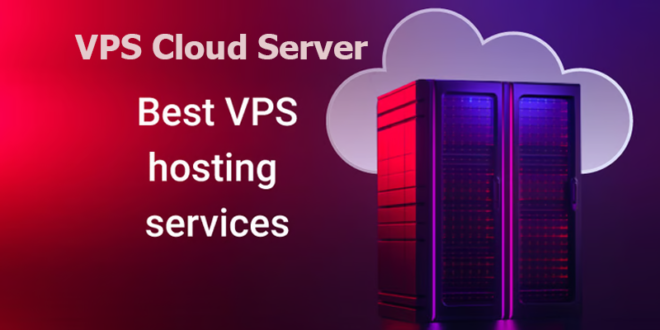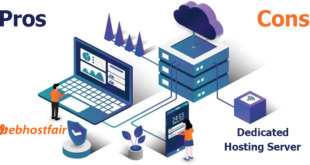In the dynamic world of web hosting, Virtual Private Servers (VPS) and Virtual Dedicated Servers (VDS) stand out as versatile and powerful solutions, offering businesses enhanced control, performance, and scalability for their websites and applications. Whether you’re a small business owner, a growing startup, or an established enterprise, selecting the best VPS or virtual dedicated server is crucial to ensuring a reliable and seamless online presence. In this comprehensive guide, we’ll delve into the realm of VPS and virtual dedicated servers, exploring their features, benefits, and use cases to help you make informed decisions and elevate your hosting experience to new heights.
Understanding VPS & Virtual Dedicated Servers
Virtual Private Servers (VPS) and Virtual Dedicated Servers (VDS) are both types of virtualized server environments that provide users with dedicated resources within a shared hosting infrastructure. While they share similarities in terms of functionality and performance, there are key differences between the two:
- Virtual Private Server (VPS): A VPS is a virtualized server environment created within a physical server, where multiple virtual servers are isolated from one another. Each VPS operates independently, with its own allocated resources, operating system, and software stack, providing users with a higher level of control and customization compared to shared hosting.
- Virtual Dedicated Server (VDS): A Virtual Dedicated Server, also known as a Virtual Private Server (VPS), is a virtualized server environment that mimics the characteristics of a dedicated server. Unlike traditional VPS hosting, where multiple virtual servers share resources on a single physical server, VDS allocates dedicated resources to each virtual server, ensuring enhanced performance, security, and isolation.
Key Features of VPS & Virtual Dedicated Server
When evaluating VPS and virtual dedicated server hosting solutions, it’s essential to consider the key features and functionalities they offer to meet your specific requirements:
- Dedicated Resources: Both VPS and virtual dedicated servers provide users with dedicated CPU, RAM, storage, and bandwidth resources, ensuring consistent performance and stability for hosted websites and applications.
- Root Access: Users have full root access or administrative privileges to their virtual server environments, allowing them to install, configure, and manage software applications, operating systems, and security settings as needed.
- Scalability: VPS and virtual dedicated server offer scalable hosting solutions, allowing users to upgrade or downgrade their server resources based on changing requirements and traffic patterns without downtime or disruption.
- Customization: Users have the flexibility to customize their server environments according to their specific needs and preferences, including choosing operating systems, control panel interfaces, and software stacks.
- Security: VPS and virtual dedicated server provide enhanced security features, such as firewalls, intrusion detection systems, and regular security updates, to protect against cyber threats and vulnerabilities.
- Isolation: Each VPS or virtual dedicated server operates in an isolated environment, ensuring that the performance and security of one server are not affected by the activities of other virtual servers on the same physical hardware.
Use Cases of VPS & Virtual Dedicated Server
VPS and virtual dedicated servers cater to a wide range of use cases and industries, offering businesses the flexibility, performance, and control they need to succeed in the digital landscape:
- Website Hosting: VPS and virtual dedicated server are ideal for hosting websites, blogs, and e-commerce platforms that require reliable performance, customizable configurations, and scalable resources to accommodate fluctuating traffic and data demands.
- Web Applications: Businesses can deploy web applications, content management systems (CMS), and development environments on VPS and virtual dedicated server, leveraging dedicated resources and root access for optimal performance and flexibility.
- Software Development: Developers and IT professionals can utilize VPS and virtual dedicated servers for software development, testing, and deployment, creating sandbox environments, hosting version control systems, and collaborating on projects with ease.
- Database Hosting: VPS and virtual dedicated server are well-suited for hosting databases and data-intensive applications that require fast storage, efficient processing, and secure access to stored data.
- Business Applications: Companies can deploy business-critical applications, such as customer relationship management (CRM) systems, enterprise resource planning (ERP) software, and collaboration platforms, on VPS and virtual dedicated server for enhanced performance and security.
VPS and Virtual Dedicated Servers represent powerful hosting solutions that offer businesses the flexibility, performance, and control they need to thrive in the digital age. Whether you’re hosting a website, deploying a web application, or managing business-critical software, VPS and virtual dedicated server provide the resources and capabilities to meet your specific requirements and objectives. By understanding the key features, use cases, and benefits of VPS and virtual dedicated server, you can select the best hosting solution to support your business growth and success. With the right VPS or virtual dedicated server by your side, you can unlock the full potential of your online presence and achieve your goals with confidence
 webhostfair Web hosting news, reviews | Best web hosting service for your business
webhostfair Web hosting news, reviews | Best web hosting service for your business

